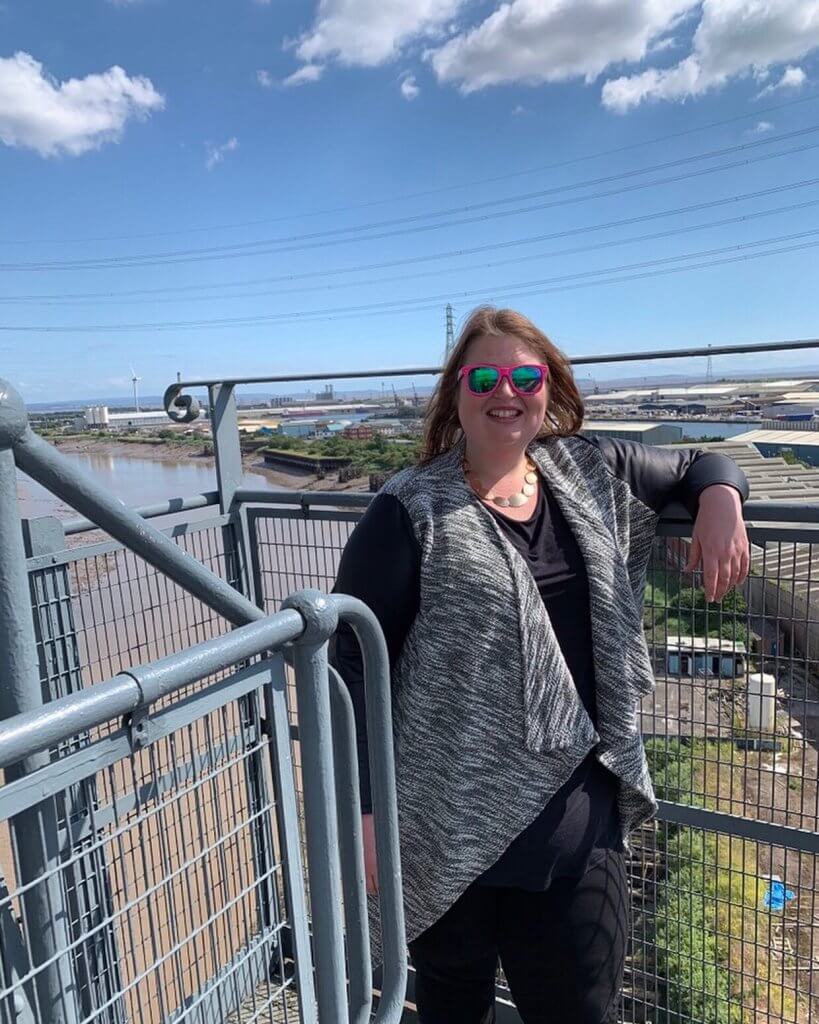Changing direction
When Katie Somerfield was diagnosed with idiopathic PH in 2015, she would never have believed that four years later she’d be embarking on a new career in healthcare. Here, the 35-year-old from Newport talks about the Physician Associate Masters course she started in autumn 2019.
Having come to terms with my PH diagnosis and not being able to have children, I came to realise that I wanted to dedicate my life to helping others.
Having explored how I could do this for the past two years, whilst it was possible to become a doctor, this would have had large financial implications and taken many years to accomplish.
I attended an open day at Swansea Medical School and felt inspired by a talk on the Physician Associate Masters. This was a funded course which resulted in working in the NHS, with opportunities across many areas of healthcare.
The role of a Physician Associate is similar to that of a junior doctor, where you work supervised and includes managing patient lists – whether this be in A&E through to surgical placements or having your own clinic in a GP surgery.
In 2018 I gave up my career in marketing and event management to gain experience of working in a healthcare setting, so I could understand the nature of what I was stepping into.
I went on to undertake an A-level maths equivalent as the university had certain requirements for applicants, and I also spent some time interviewing many healthcare professionals, including a midwife, consultant, junior doctor and paramedics.

I worked hard to get through the application and was overjoyed to hear I had made it through to interview stage. I had to fill in a disability form where I told them I had PH, and the form required a letter from my doctor. I also had to undergo a medical assessment.
I started the course in autumn 2019 and it includes 1,600 hours of clinical placements across GP surgeries and rotations around hospital areas in addition to classroom-based learning.
I will use the tools I have developed to support myself through the stress that will come with such an intense course.
These tools include meditating, yoga, exercising, maintaining a strong social network, my Buddhist practice and going out into nature as often as possible.
I believe that these aspects of health, which sometimes fall under the remit of ‘social prescribing’, an area I’m really interested in, are as important for keeping me relatively well as the medicine I take every day.
When I was first diagnosed with PH, I couldn’t have imagined that just a few years later I would be training to become a Physician Associate. I’d been climbing the marketing career ladder, enjoying a high salary, and I never would have thought I’d end up in a medical or caring position.
I believe everything happens for a reason and that I’m capable of handling whatever life throws at me.
I’ve spent a lot of time grieving for the children I won’t have, for the years of life I may have lost, and the limitations of PH – but I am incredibly happy to say that I feel very positive about where this has now led me.
If it wasn’t for PH, I would have spent many years working in a soulless career I had come to hate; being part of the rat race and feeling dissatisfied at the state of the world.
Whilst I wouldn’t wish PH on anyone and I am still hopeful for a cure, I know that this journey has enabled me to spend the rest of my days focused on helping other people. That, for me, is the meaning of life.
















